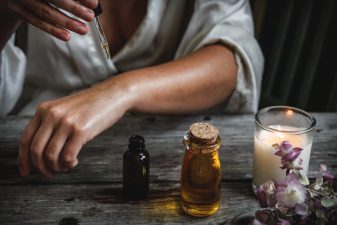
Sleeping like a baby? Or not sleeping deep at all? It’s all about noradrenaline, find Israeli researchers in new study.
Having a hard time sleeping during Covid? Or maybe you are sleeping better because you have less stressors from the commute? Or maybe you are self-medicating with CBD? During good, deep sleep, we rarely respond to external stimuli such as sounds, unless they are strong enough, like an alarm clock, or meaningful, like a baby’s cry, which wake us up.
Being able to sleep continuously in the face of sounds is critical for our health and well-being. But we differ in how easily we wake up: Light sleepers wake up from every faint sound, while deep sleepers can sleep through just about anything. We all can have dramatic changes in our sleep quality during periods of stress. Turns out sleep is regulated by a chemical in our brain called noradrenaline.
A new study by the lab of Prof. Yuval Nir from Tel Aviv University explores the reasons why, during sleep, we rarely respond to external stimuli such as sounds even though our brains remain highly active. The team’s discovery is that a tiny region in the brainstem called the locus coeruleus, which secretes the chemical noradrenaline throughout the brain, is a key factor that determines how deeply we sleep.
The study, which was published in the journal Science Advances, finds that noradrenaline, which is secreted in response to stress, lies at the heart of our ability to “shut off” our sensory responses and sleep soundly. The higher the activity is in this brain system, the more likely we are to wake up from a sound. The normal healthy situation is for noradrenaline activity to be silent/minimal during sleep, but when noradrenaline activity is high, we wake up more frequently, even from low-volume sounds. This discovery can explain the changes in sleep quality between different people.
For the purpose of the research, the scientists used rat models to determine the level of locus coeruleus activity during sleep and which sounds, if any, would be responsible for waking up the rodents.
They found that the rats’ varying levels of locus coeruleus activity accurately predict if the animals would awaken in response to sounds. The team then silenced the locus coeruleus activity through optogenetics, which harnesses light to control neuronal activity, and found that the rats did not readily awaken in response to sound.
Why grandma is sleeping well?
“When we increased the noradrenaline activity of the locus coeruleus while a sound played in the background, the rats woke up more frequently in response, but when we decreased the activity of the locus coeruleus and played the same sound in the background, the rats rarely woke up,” says Hayat. “So, we can say that we identified a powerful ‘dial’ that controls the depth of sleep despite external stimuli.”
“Sleep disturbances are a major health issue and are frequent in aging, as well as in neurological and psychiatric disorders,” concludes Prof Nir. “It is important to test if our findings on varying noradrenaline levels can explain hyperarousal that characterizes condition such as anxiety disorders and PTSD, and if so, to build on these findings to develop novel methods to improve sleep quality.”
The research was conducted in collaboration with Bristol University, the Weizmann Institute of Science and the University of Montpellier.

